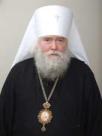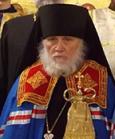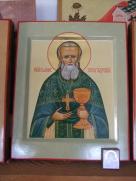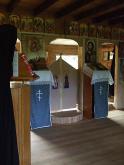Thursday, October 30, 2014
An Orthodox Teenager’s View of Halloween
By Sophia Desiatov
 As most of you are aware, Halloween is just right around the corner. It’s a time where children dress up as imaginary creatures and go around knocking on doors, hoping that their reward will be candy. Growing up, I was never allowed to participate in the tradition of dressing up and trick or treating. I remember my parents telling me that on this night, whenever a knock was heard, we weren’t allowed to open the door. I didn’t understand it at the time; I just thought Halloween was a universally accepted holiday, like Christmas or Easter. But now, I understand why my parents were so cautious about this one particular night. And I think it’s important that all Orthodox Christians – especially children – should understand the meaning behind Halloween.
As most of you are aware, Halloween is just right around the corner. It’s a time where children dress up as imaginary creatures and go around knocking on doors, hoping that their reward will be candy. Growing up, I was never allowed to participate in the tradition of dressing up and trick or treating. I remember my parents telling me that on this night, whenever a knock was heard, we weren’t allowed to open the door. I didn’t understand it at the time; I just thought Halloween was a universally accepted holiday, like Christmas or Easter. But now, I understand why my parents were so cautious about this one particular night. And I think it’s important that all Orthodox Christians – especially children – should understand the meaning behind Halloween.
Halloween, or All Hallows’ Eve, is a tradition that began in the pre-Christian times. The Celtic people, who were commonly pagans, believed that ‘life was born from death’. Thus, on the last day of October, they worshipped a deity called Samhain (pronounced sow-in), otherwise known as the Lord of death. On this night, sacrifices – animals or human – were made in order to appease Samhain, who in turn would lower the veil between the living and the dead, allowing the lost ones to be reunited the living for one night. The festival also included a bonfire of oak branches where the sacrifices were made and other rituals performed. Moreover, the custom of ‘trick or treat’ originated from people – in costume - visiting houses in exchange for food, so that the hunger of the dead would be satiated. If Samhain was not pleased with the offering, ‘tricks’ or curses would befall on those visitors.
It doesn’t sound very innocent, does it? The trouble with Halloween is that because of society, it has become heavily commoditised, shrouding the true meaning and covering it with money and profits. This makes it easier for children to see Halloween as a way to spend money and have fun, while ignoring the warnings. Fortunately, I haven’t experienced a traditional Halloween night, unlike the parades in Greenwich Village in the United States, and I don’t plan to. It feels wrong going against my belief in order to celebrate and revel in a night of darkness in order that a satanic deity could be appeased, all because everyone else around me is doing it.
That’s another problem with Halloween; it has become readily accepted by society, that it puts pressure on faithful Orthodox Christians to succumb to the temptation and darkness of Halloween. It puts pressure on Orthodox children to follow their peers’ footsteps, because to them, it’s ‘cool’. But we shouldn’t feel pressured to explain to our peers that we don’t celebrate Halloween because it goes against our faith. They should learn to embrace our values and respect our decisions, just as they expect us to respect their decisions.
Halloween is a pagan tradition that seeks to appease a satanic deity, and Orthodox Christians must learn to defend themselves against those who attempt to draw us into this celebration of evil.
Sophia Desiatov
Editor’s note: Orthodox Christians would do best to attend the All-night Vigil in honour of St John of Kronstadt on Friday night, rather than participate in pagan festivities!





